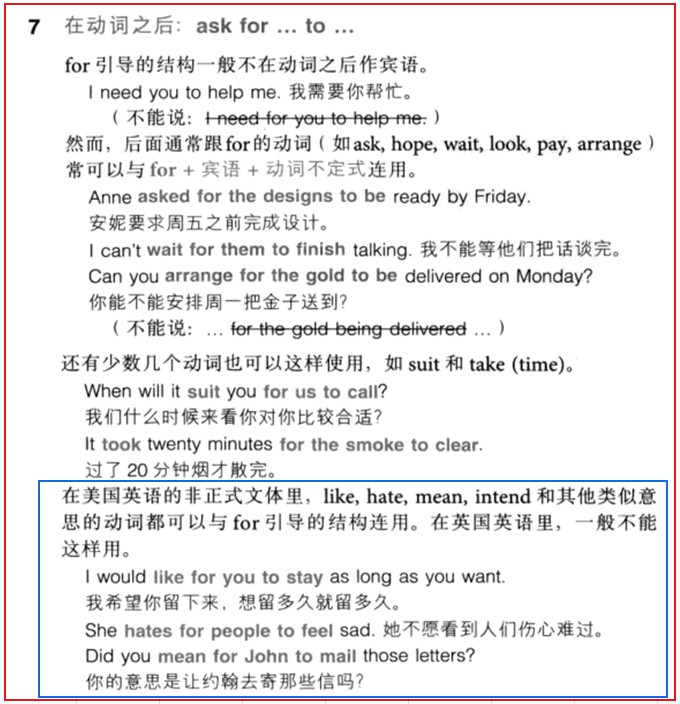这个用法没有问题,只是无论在美国还是在英国都用得不多,所以大家看到的基本都是不用for的用法。此用法英美两国都见得到,不过美国稍多些而已。我引Grammar of Spoken and Written
English中的解释 Verb + for NP + to-clauseIn addition, some verbs of desire
optionally take for + NP before a to-clause:
I would like Sir Alec to carry on. (fict)
V. But I would like for you to do one
thing if you would. (fict)
Certainly, but I should hate you to forget
that he has scored more runs in Test cricket than any other Englishman. (BrE
news)
V. I’d hate
for all that stuff to go bad.
(AmE conv)
At the other extreme, Pattern 3
is rare, especially in BrE. However, it is slightly more common in AmE
conversation, as in:
I would just like for you to live without
my income. (AmE conv)
以上是2021版。
再看2016年一本书的解释 Examples like I want for you to be happy
are on the border between standard and non- standard, at least in British
English.《A
Critical Account of English Syntax》 2016
但是,在有些情况下,for却是不能省略的,比如:I would like very badly *?(for) Frances
to buy the book. 因为中间有状语。
在特殊疑问句中有些情况下却又不能用 Who would you like (*for) to buy the book?
有些可以用 What would you
like (for) him to buy?
原因就是for不可以与特殊疑问词连用。以上两句一是who作主语不可以,一是what作宾语,可用可不用。另外,类似的还有want,但是用for的情况更为少见,但必用和不用的情况类同 ’d like. I want very much for you to
go. They had wanted all along for the performance to begin at six. ∗ It had been wanted
all along for the performance to
begin at six.
如果想了解的更详细些,可以参考剑桥语法中有关章节。







